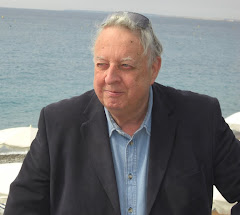For over 100 years now, the music of
Sergei Rachmaninov has stood the test of time and remains
highly popular with musicians and the public. For much of the
previous century, the critics and “experts” were a bit sniffy
about Rachmaninov's music; it was popular, and people loved
it. Quelle Horreur ! But Sergei has seen off pretty well all
contenders for music written in the 20th century,
including that of his erstwhile rival Igor Stravinsky whose
popularity now seems to rest mainly on his earlier ballet music.
Judging by the world's concert programmes, and by issued recordings,
Rachmaninov goes from strength to strength.
I caught up with the melancholy Russian
again in a new (Naxos) recording of his third piano concerto played
by my current favourite pianist for the Romantic Russian repertoire:
Boris Giltburg. The work is well recorded; the orchestra the
Scottish National Orchestra conducted by Carlos Miguel Prieto.
Giltburg projects the music magnificently guided, one suspects, by
the composer's own recording. This is all about Rachmaninov, not
Giltburg. Boris is not in the line of self-projecting pianists such
as Lang Lang, Horowitz, Martha Argerich (and many others). He plays
the music magnificently, with an incredible technique in the big
first movement cadenza.
Igor Levit and Boris Giltburg
are currently my favourite Russian-born pianists, with Igor anchored
firmly in Bach, Mozart and Beethoven, and Boris in Rachmaninov and
Shostakovitch. This is a good era for first-class piano playing.
There are few things more agreeable in life than sitting back in a
comfortable chair with a glass of good wine and letting the music of
Sergei Rachmaninov wash over you.
